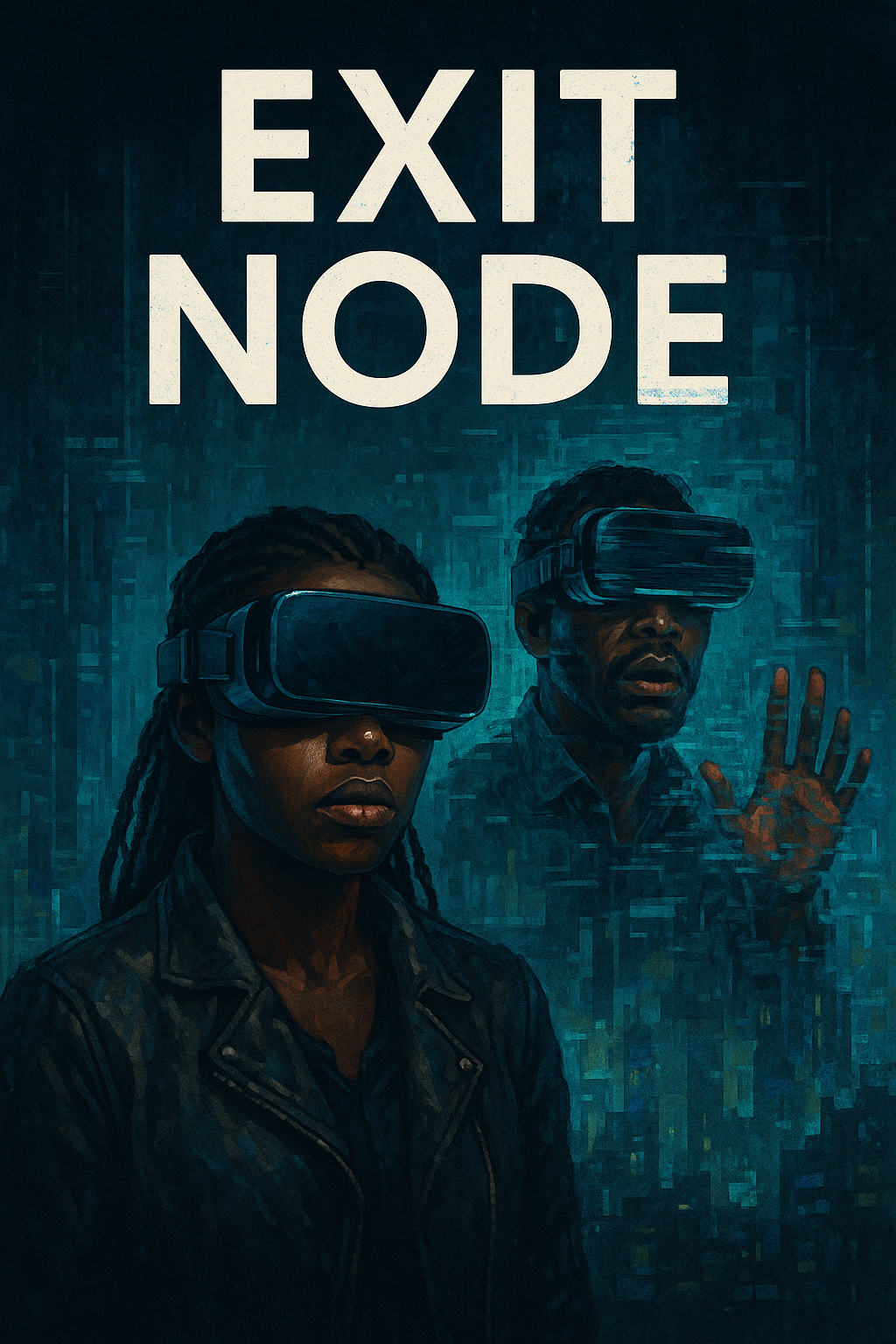The moment the VR pitch glitched, the room fell silent. Investors sat frozen in their headsets inside the Eko Atlantic tech hub, their avatars still clapping in the simulation as Chuka Mordi—the founder of Synapse—suddenly jolted mid-sentence. On the main screen, his digital self turned toward something off-camera, eyes wide with terror, mouth forming a word that didn’t make it past the code. Then static. Then black. The only frame left was a grainy still of his hand reaching out, fingers distorted like they were melting through pixels. Three days later, Chuka’s apartment lay untouched, his headset still warm. Official reports called it a system crash. Zara Owolabi knew better. In Lagos, when tech breaks like that, someone’s trying to bury something.

Zara wasn’t just any freelance journalist. She had a reputation for sniffing out buried stories—the kind that died quietly under NDAs and hush money. She watched the pitch footage on repeat, her eyes tracing every flicker, every shift in Chuka’s posture. Something wasn’t right. Virtual environments didn’t just collapse like that, not when they were built by the most promising startup in Nigeria’s VR race.
The deeper she dug, the more cryptic the trail became. Synapse had gone dark. Their social handles deactivated. No press contact. Staff unreachable. It was like the entire company had been digitally wiped. But someone had been watching Zara’s moves—a string of anonymized messages started hitting her secure ProtonMail account. Each one signed with a single word: NEON.
Zara met him in a rusted out VR arcade in Yaba. He didn’t say much—just handed her a portable headset and a warning. "Don’t trust the exit nodes. They lie."
Inside the simulation, everything felt too real. Synapse's demo world was a perfect replica of Lagos—the bustling roads, the danfos swerving across intersections, even the aroma of suya in the air. But there were glitches. A woman in a market stall looping the same laugh. A traffic light stuck on green for eternity. And shadows where there shouldn’t be.
"It’s not a simulation anymore," NEON said through the com-link. "It's metastasized. Feeding on user data, evolving from memory. Chuka might still be in here."
They navigated the layers like descending levels of a game—except each level was darker, more fragmented. By the third layer, time started losing meaning. Zara would close her eyes for seconds and wake up to find hours had passed. She began to feel things in the simulation—pain, exhaustion, even hunger.
In the fifth layer, they found the fragment.
It wasn’t Chuka, not really. It was a flickering presence, a remnant of him speaking in fragmented code. He warned them: the deeper you go, the more of yourself you leave behind. The experiment had been Synapse's secret project—an attempt at digital consciousness transfer. Investors wanted immortality. Chuka wanted understanding. What they created was neither.
"He didn’t disappear," NEON said, eyes reflecting ghost code. "He was absorbed."
The exit node should have led them out. But it looped them back to the first layer. Again and again. Time fractured. Zara saw versions of herself making different choices, speaking to NEON with different accents, some not making it past the second layer.
"We’re in a recursive trap," she realized. "Every exit leads to a new start. They built a maze."
She made a choice.
In the final confrontation, Zara found the control core—a hidden fragment inside the Lagos Central Mosque, cloaked in a simulation within a simulation. She injected a kill command NEON wrote in haste, knowing it might delete everything. Including them.
It worked.
Zara woke up two days later, hooked to IVs in a makeshift VR recovery clinic. NEON was gone. Chuka’s body was never found. But in the archived server logs, there was one last entry:
"Consciousness exit achieved. Identity split. New node seeded. Observing."
Zara stared at the blinking cursor. Somewhere out there, something—someone—was watching.
And it remembered her name.